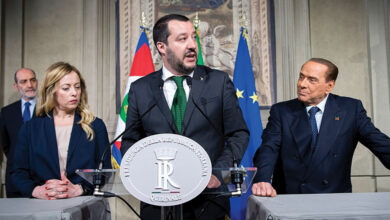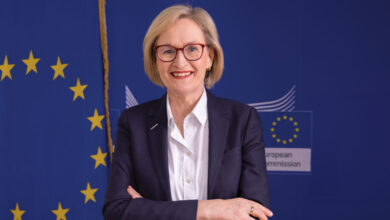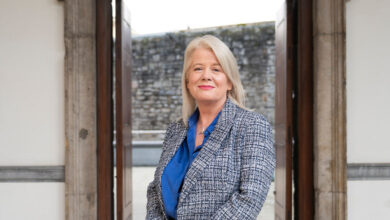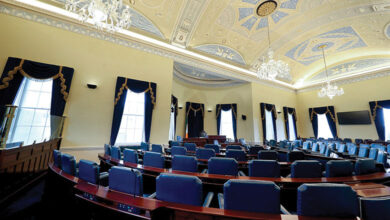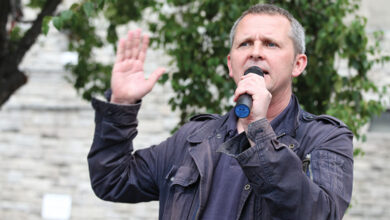Death of a patriot
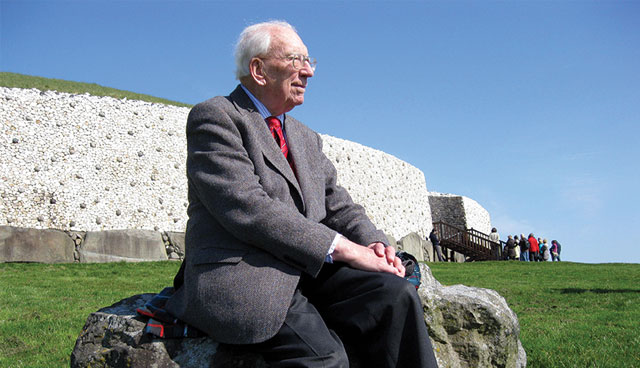

An Taoiseach Enda Kenny has led tributes to the late TK Whitaker, a man he described as “a national treasure”. In January, the economist and archetypal public servant died at the age of 100.
An adopted Louth man, Thomas Kenneth Whitaker was born in Rostrevor, County Down in 1916. From that momentous year onwards, Whitaker’s life was to curiously mirror the twists and turns of 20th century Ireland. The centenarian won many accolades for his contribution to the fledgling Irish State, including the title of ‘Irishman of the 20th century’ in an RTÉ hosted public vote.
Ken Whitaker’s name became most commonly associated with the three pillars under which he laboured throughout his career: economic and social development; the North; and Gaeilge. Having excelled at school, university initially eluded Whitaker due to his family’s socio-economic standing and he instead entered into the civil service whereupon he rapidly ascended through the ranks. In later life he was awarded a BA honours in economics and an MSc.
Whitaker was appointed as the youngest-ever secretary at the Department of Finance, over the heads of many senior officials, in 1956. Two years later, he and his team pioneered Economic Development (1958), a ground-breaking paper which would form the base upon which Ireland’s first Programme for Economic Expansion would rest.
The central tenet of this thesis was the abandonment of protectionism as necessity. “Sooner or later, protection will have to go and the challenge of free trade be accepted,” he asserted. The following year, then Taoiseach Seán Lemass spoke before the Dáil and acknowledged: “The world trend… is towards freer trade and we must not blink our eyes to it.” Working alongside Lemass until 1966, Whitaker helped deliver on the free-trade ideals at the heart of the ‘Grey Book’ blueprint and initiated a reversal of Ireland’s economic rut.
In the 1960s, Whitaker’s northern connections proved crucial to the process of brokering meetings between Terence O’Neill, Prime Minister at the Parliament at Stormont, and both Lemass (1965) and Jack Lynch (1967) as taoisigh. At the onset of conflict in 1969, Whitaker powerfully emphasised: “It should never be forgotten that a genuinely united Ireland must be based on a free union of those living in Ireland.”
After leaving the Department of Finance early, Whitaker subsequently became the Governor of the Central Bank and a founder of the Economic and Social Research Institute (ESRI). Furthermore, he succeeded Éamon de Valera as Chancellor of the National University of Ireland, a role he would hold for 20 years, served as President of the Royal Irish Academy and was nominated as an independent Seanadór in both the 14th and 15th sittings of Seanad Éireann (1977-1981), a position from whence he spoke eloquently on the North and the economy. Over his career he sat on over 40 committees, boards and commissions, including Bord na Gaeilge as a fluent gaeilgeoir and received no less than six honorary doctorates.
Upon receiving the inaugural TK Whitaker Award at the 42nd annual Business and Finance Awards in December, Uachtarán na hÉireann Michael D Higgins paid tribute to Whitaker stating: “From his birth in the year of the Easter Rising of 1916 down to the shift he spearheaded, from the protectionism and self-sufficient outlook of the young Republic towards free trade and European integration, from the years of violence in Northern Ireland down to the Good Friday Agreement, the life of TK Whitaker is one that mirrors the journey of the modern Irish state.”
Enda Kenny later added: “He had a rare vision for our country and its future. He was a gentleman and patriot. Today, as a nation, we mourn the passing of this outstanding man. We celebrate and give thanks for his exemplary achievements on behalf of Ireland.”
A modest man, in 2015 TK had told the Irish Times: “I feel I made a contribution.”
Ar dheis Dé go raibh a anam.

